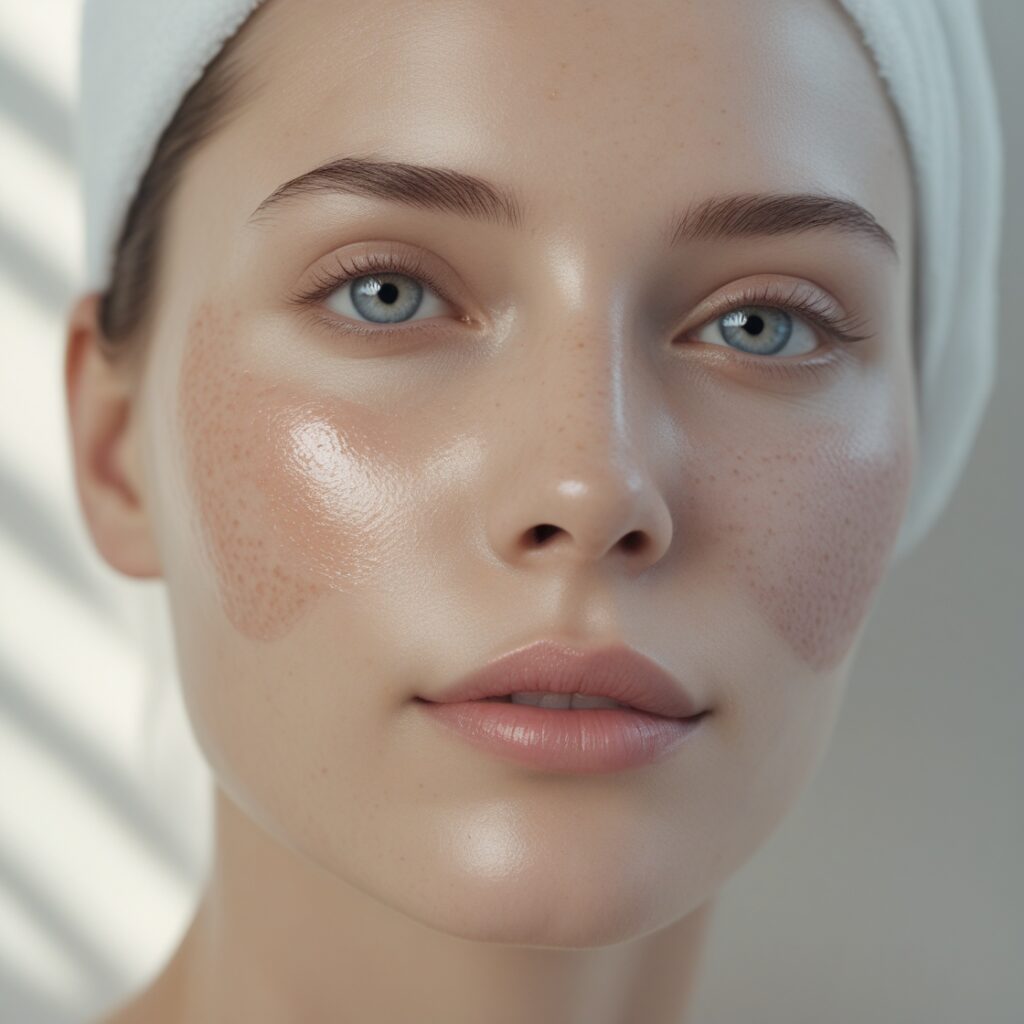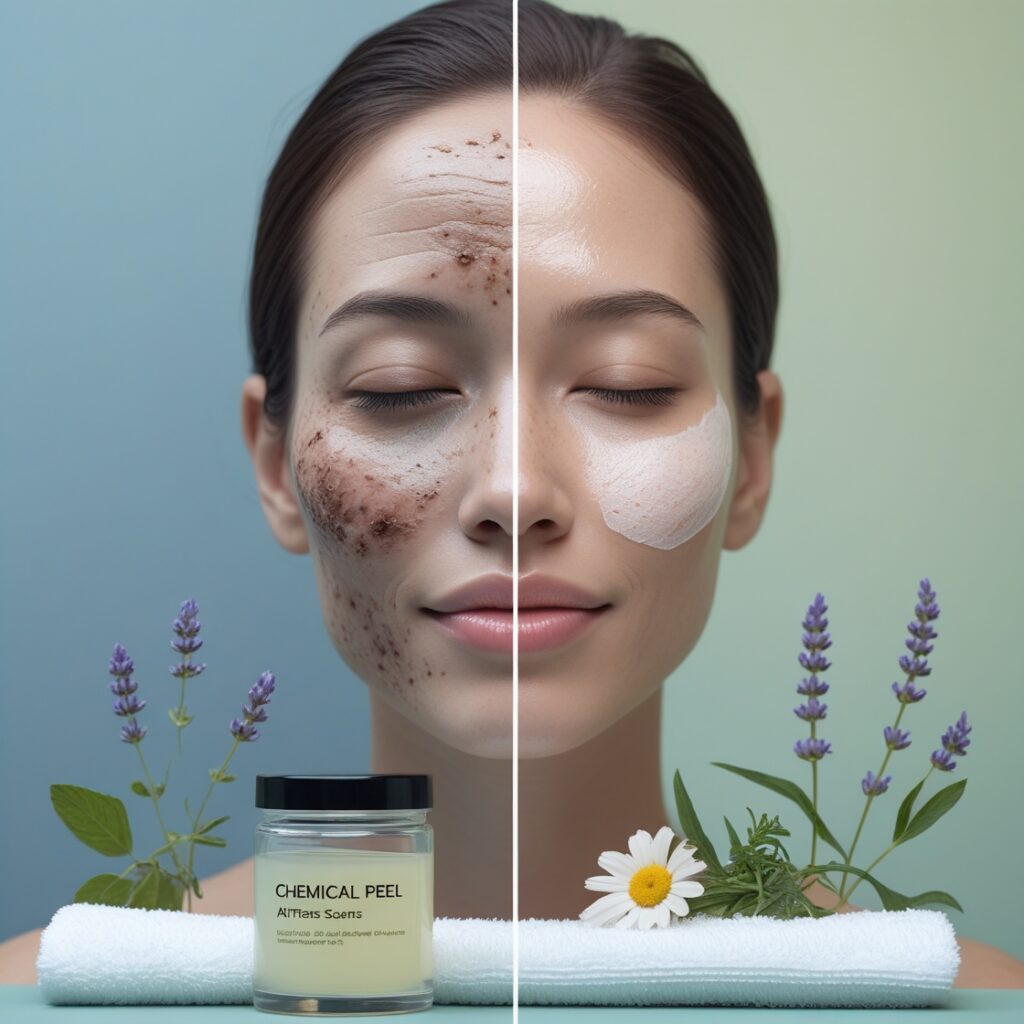People often regard scars, whether they be from acne, an injury, or inherent from surgical procedures, as unsightly. Many treatments are available today to help with their sins and large inhabitants. Such an option is chemical peeling. But do chemical peels actually work on scars? Let us first look into how they function: their types, effectiveness, and the risks related to their use.
What Are Chemical Peels?
They are generally defined as the application of some chemical solution onto the skin for the gradual destruction of the outer layer of the skin so that it may shed off, causing the hidden deeper layers of skin to grow. This results in smoother skin with a uniform skin tone since the ingredients are designed with this expectation. Chemical peels are usually utilized on acne scars and pigmentation in conjunction with fine lines; hence, chemical peels become more popular for skin rejuvenation.

Types of Chemical Peels for Scars
Chemical peels are used differently according to varied scar’ strengths. Superficial peels: These are mild AHAs or BHAs that act only on the outermost skin layer, hence mostly suited for treating mild acne scars and less severe pigmentation.
Medium peels use TCA that acts deeper into the dermis; thus, these are best for treating moderate cases of acne scarring and uneven pigmentation.
Deep peels use other stronger acids, for example, phenol, that cause deeper action into the dermis in cases of deeper and more severe scarring. They do, however, entail a longer period of healing, hence they are done under medical supervision.
Are Chemical Peels Effective for Scars?
With chemical peels, mild to moderate scars, such as acne and superficial ones, can improve glaringly. These are collagen stimulations to reduce the appearance of scar tissue, hyperpigmentation, and flatness of skin tone. Increases cell turnover for fresher, healthier skin. Deeper scarring, including boxcar scars or ice-pick scars, is best treated with a combination of treatments, perhaps combining micro-needling or laser methods for maximum treatment options.
Who Is a Good Candidate for Chemical Peels?
Individuals with superficial to moderate acne scars, hyperpigmentation, or uneven skin texture are candidates for chemical peels. Patients with active infections, wounds, or open acne do not qualify.

Those with darker skin should undergo this treatment only with a thorough assessment of the implication involving a dermatologist because certain peels could actually worsen PIH development. It is important to understand one’s skin type and concerns in determining if a chemical peel is the best route for one to take.
Possible Risks and Side Effects
Chemical peels are normally safe when you go to an honest practitioner, but there are risks. Most common side effect issues may include redness, irritation, and temporary peeling and flaking of the skin. Although chemical peels do have some risk of increased sun sensitivity, hyper- or hypopigmentation can develop in rare instances. Prolonged care and expertise will reduce these risks and smooth the healing.
Aftercare Tips for Best Results
Aftercare is essential for achieving one of the primary goals of making the skin very well moisturized and hydrated. Sun exposure should be kept to a minimum, and applying sunscreen often will protect the shell of skin that is healing. Recommendations made by a dermatologist should be adhered to, with special emphasis on not picking on peeling skin, as it minimizes scarring and enhances improved results. An overall aftercare routine makes the treatment more effective.

Chemical peels help to reduce scars, improve skin quality, and lessen any uneven skin tone or discolorations. Depending on the type of scar, how deep the chemical peel goes, and a few other factors, this is not guaranteed to work. This way, one’s dermatologist will be able to make the best recommendations for treatments based on skin type and severity of scars. If a chemical peel is of interest, the benefits, risks, and aftercare must be weighed to come to an informed decision. If taken seriously, chemical peels can take you to a whole new level of softer, healthier skin.

